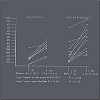Neonatal bacterial attack-unraveling the mysteries of acid defense
DOI:
https://doi.org/10.52783/jns.v10.966Keywords:
Neonatal hypergastrinemia, Neonatal hyperacidity, Insensitive negative feedback between gastrin and acidity, Neonatal enteric infectionsAbstract
This review article examines how gastric acidity develops and is maintained during the first 4 weeks of life. An initial maternal transfer of gastrin is followed by progressively increasing baby gastrin, not yet restrained by the rising acidity. When negative feedback matures at around 17 days, there is a predictable and real temporary peak acidity which is followed by controlled and independent baby acid secretion.
Downloads
Metrics
References
Miller RA. Observations on the gastric acidity during the first month of life. Arch Dis Child. 1941; 16:22.
Gregory RA, Tracy HJ. The constitution and properties of two gastrins extracted from hog antral mucosa. Gut. 1964; 45:103-17.
Attia R, Ebeid AM, Fischer JE, Goudsouzian NG. Maternal foetal and placental gastrin concentrations. Anaesthesia. 1982; 37:18-21.
Bruckner WL, Snow H, Fonkalsrud EW. Gastric secretion in the canine foetus following maternal stimulation: Experimental studies on placental transfer of insulin, histamine and gastrin. Surg. 1970; 67:360-3.
Miclat NN, Hodgekinson R, Marx GF. Neonatal gastric pH. Anaes Analg. 1978; 57:98-101.
Walshe JH. Role of gastrin as a trophic hormone. Digestion. 1990; 47:11-6.
Rogers IM, Davidson DC, Lawrence J, Ardill J, Buchanan KD. Neonatal secretion of gastrin and glucagon. Arch Dis Child. 1974; 49: 796-801.
Euler A, Byrne W. Cousins LM, Ament ME, Leake RD, Walshe JH. Increased serum gastrin concentrations and gastric acid hyposecretion in the immediate newborn period. Gastroenterol. 1977; 72:1271-3.
Lucas A, Adrian TE, Christofides N, Bloom SR, Aynsley-Green A. Plasma motilin, gastrin and enteroglucagon and feeding in the human newborn. Arch Dis Child. 1980; 55:673-7.
Moazam F, Kirby WJ, Rodgers BM, McGuigan JE. Physiology of serum gastrin production in neonates and infants. Ann Surg. 1984; 199:389-92.
Sann L, Chayyvialle AP, Bremond A, Lambert R. Serum gastrin in early childhood. Arch Dis Child. 1975; 50:782-5.
Euler AR, Byrne WJ, Meisse PJ, Leake RD, Ament MF. Basal and pentagastrin stimulated acid secretion in new-born infants. Ped Res. 1979; 13:36-7.
Agunod M. Correlative study of hydrochloric acid, pepsin and intrinsic factor secretion in newborns and infants Amer. J Digest Dis. 1969; 14:400-13.
Rogers IM. Pyloric stenosis of infancy and primary hyperacidity - the missing link. Acta Pediatr. 2014; 103:e558–e560.
Rogers IM. The cause of pyloric stenosis of infancy. Ist Ed. Academic Press. March 2021 Published by Elsevier.
Imhann F, Bonder MJ, Vila AV, Fu J, Mujagic Z, Vork L, et al. Proton pump inhibitors affect the gut microbiome. Gut. 2016; 65:740-8.
Putnam PE. Stop the PPI express. They do not keep the baby quiet! J Pediatr. 2009; 154:475-6.
Sochaczewski C, Meunsterer OJ. The incidence of idiopathic hypertrophic pyloric stenosis nearly halved from 2005 to 2017; analysis of German administrative data. Paed Surg Int. 2021; 37:579-85.
Rogers I.M. Pyloric stenosis of infancy and neonatal prescriptions of PPI drugs- -the Acid test. J Pediatr Neonatal Care. 2017; 6;0025.

Published
How to Cite
Issue
Section
License
Copyright (c) 2021 Ian Munro Rogers

This work is licensed under a Creative Commons Attribution 4.0 International License.
You are free to:
- Share — copy and redistribute the material in any medium or format
- Adapt — remix, transform, and build upon the material for any purpose, even commercially.
Terms:
- Attribution — You must give appropriate credit, provide a link to the license, and indicate if changes were made. You may do so in any reasonable manner, but not in any way that suggests the licensor endorses you or your use.
- No additional restrictions — You may not apply legal terms or technological measures that legally restrict others from doing anything the license permits.










